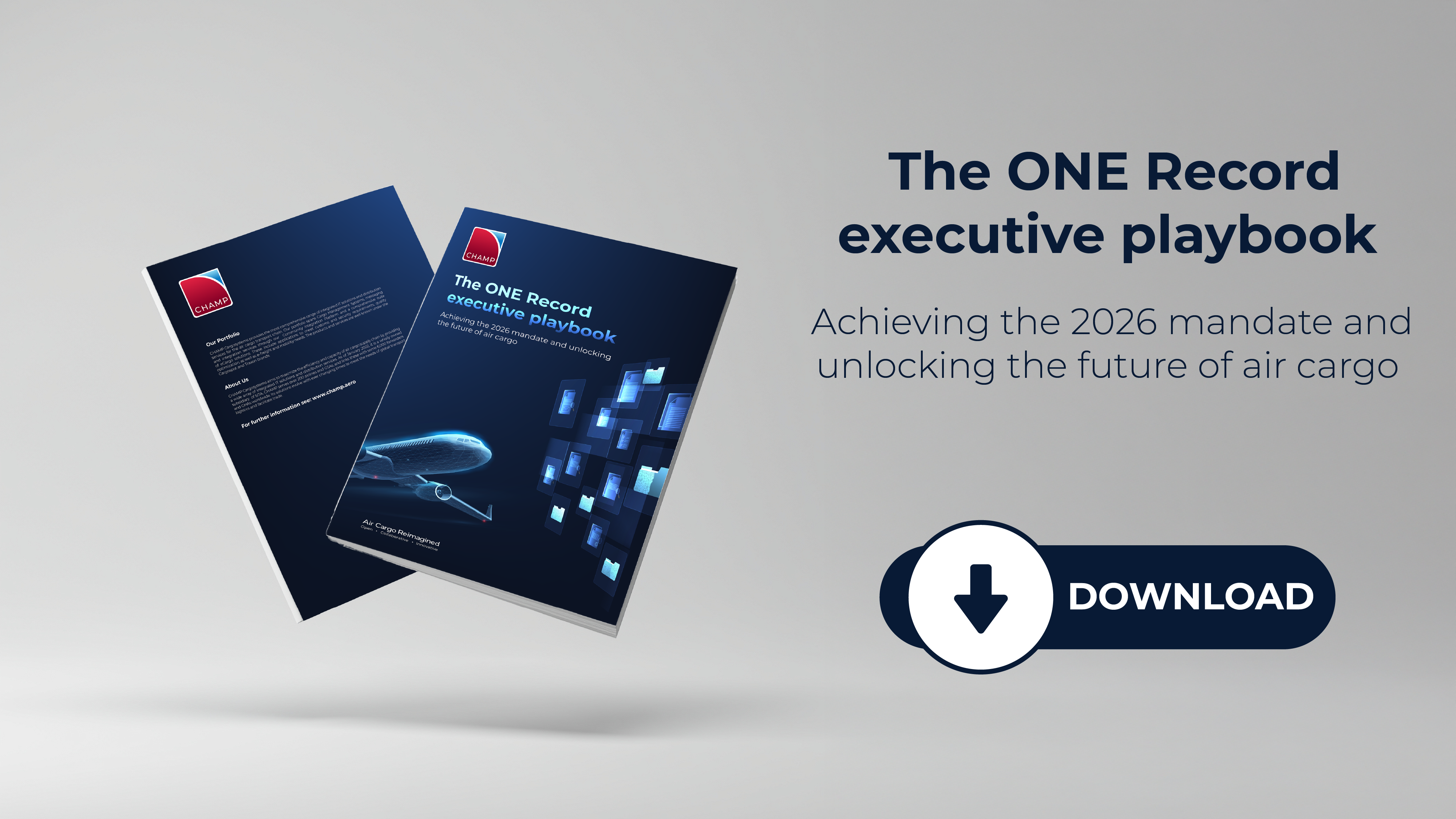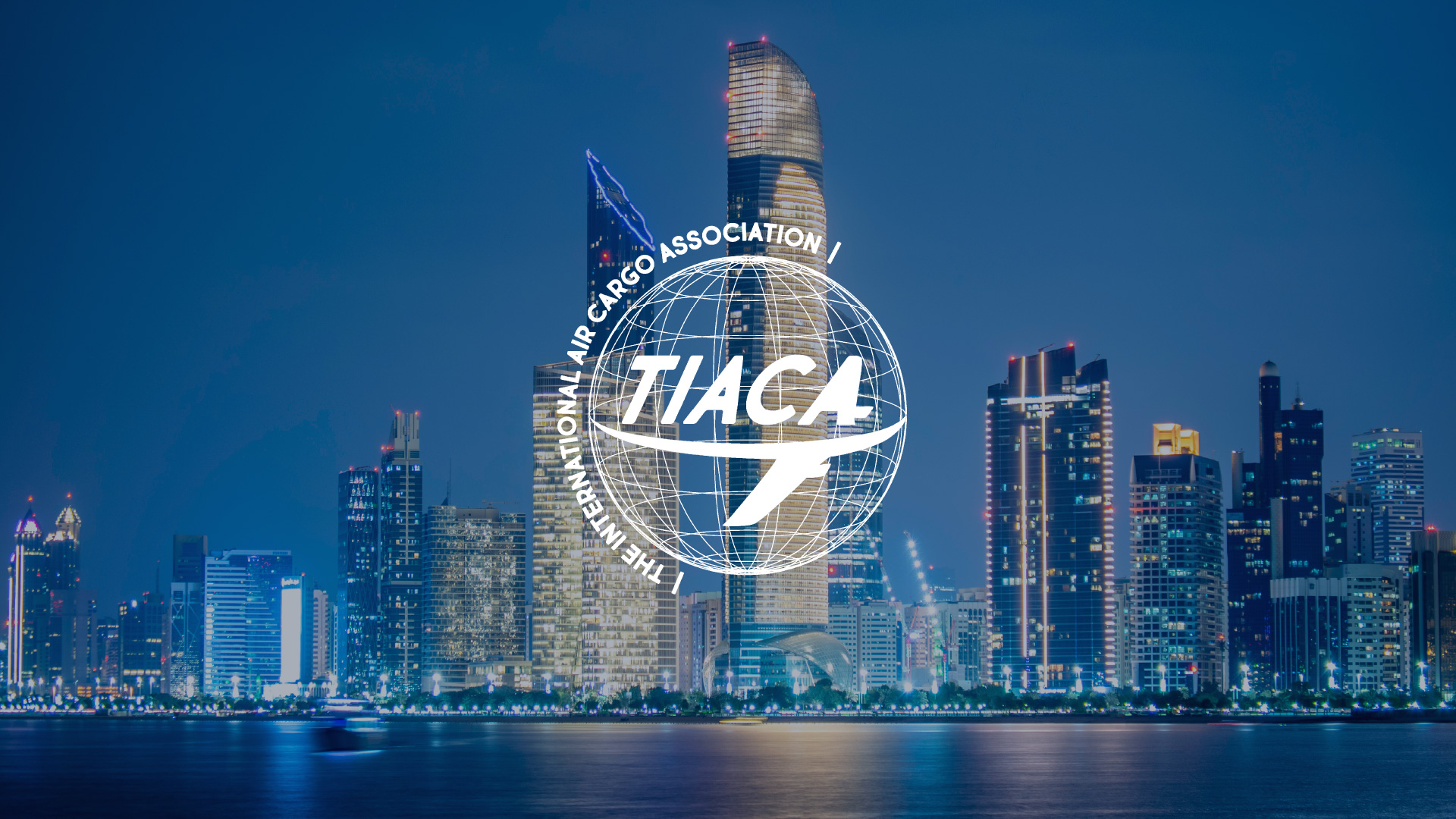The Abu Dhabi event has now concluded. However, the impacts of AI's growing presence in the industry remain evident. AI will significantly change how we all work and the future of air cargo. As such, there are several key learnings that we should all take into our 2026 digitalization goals.
During the event, CHAMP CEO, Chris McDermott joined a panel of air cargo experts to share insights about the future of the industry and the changes we can expect to see with AI integration.
Moderated by Alex Lennane, Publisher and Director at The Loadstar, and Glyn Hughes, Director General at TIACA, the expert panel included Wilson Kwong, Chief Executive of Hong Kong Airport Cargo Terminals Ltd, Sanjeev Gadhia, Founder and CEO of Astral Aviation, and Hamdi Osman, Founder and CEO of SolitAir Cargo Airline (a new TIACA trustee).
The agenda included:
- Near-future digital priorities
- The potential impact of AI on entry-level roles
- AI and the wider workforce
- Africa’s outlook
Key insights from the industry leader’s roundtable
During the discussion, each panelist gave their unique perspective on the future of AI in air cargo and the challenges and opportunities they see facing our industry as we move further towards a digital, and potentially AI-driven, future.
Chris contributed specialist insight into key aspects of how the industry is currently exploring digitalization and strategic innovation, covering some of the necessary factors we all must consider if we are to embrace and manage change and evolution for our community.
Looking ahead: What’s next in the world of digital & AI
Moderator Glyn Hughes began by asking the panellists about the pace and scale of AI adoption and prompted them to look beyond speculation, instead exploring realistic adoption paths across AI and digital.
Chris highlighted that change is already underway across the air cargo industry, and that numerous businesses are already looking to integrate AI using CHAMP’s GenAI product launch last year as an example. He emphasized collaboration and talent as key components to adoption and that more companies are recruiting people with machine learning expertise.
Chris then underlined that human change is often the hardest component and must be managed carefully. Hamdi agreed, though, cited automation as essential for completely routine tasks and that there will remain a genuine need for human intervention at key points.
Wilson highlighted using AI as effective in retrieving answers across large handling manuals for faster operations and proactive AI intervention as beneficial for reducing downtime. He also suggested that sharing use cases of varying success would accelerate industry-wide learning. Sanjeev added that overcoming reluctance and sharing best practices would also be key to strengthening cross-collaboration.
AI as a risk to entry-level roles
Moderator Glyn Hughes asked the panelists about the potential threat AI poses to up to 50% of entry-level white-collar positions and how firms are to anticipate and manage that.
Chris stated that AI will primarily affect knowledge workers, but that doesn’t have to result in vast unemployment. He called for all of us, including entry-level applicants, to embrace change and use AI as a tool for developing knowledge and becoming more agile.
The panelists added that technology will supplement people and that human colleagues are a core asset to any firm. They conceded that some losses may occur in underprepared businesses and that more ‘precise hiring’ may be required in future. However, they all agreed that the goal of adopting new solutions is to redirect human time and effort from manual to high-value tasks; not to displace people.
Africa’s outlook for shifting trade and investment
Moderator Glyn Hughes finally moved on to quiz the panel on the prospect of a ‘golden age’ of African aviation over the next three to five years.
Chris stated that the world cannot ignore Africa as a market with huge potential. He went on to highlight factors supporting that argument, such as favorable (young) demographics, high mobile penetration with rising internet usage, and strong e-commerce projections. He also cited increased shipping capacity to West Africa as a potential way for businesses to trade and invest in the continent.
The panelists agreed that despite some remaining constraints on Africa’s resource wealth, there are key factors that are encouraging deeper industry presence and cooperation in Africa today:
- Greater connectivity linking the continent with the global trade hubs (Middle East, India, CIS, Turkey, and China)
- Private sector infrastructure investment
The growth of the aviation sector on the continent could eventually help improve flows of capital, people, and logistics to and deliver the vision of Africa’s ‘golden age’.
Many thanks to all panelists involved, the moderators, and to TIACA for organizing a wonderful TIACA Air Cargo Forum 2025.
.png?width=72&height=72&name=CHAMP-Logo-RGB-Full-Color-100x100%20(1).png)




